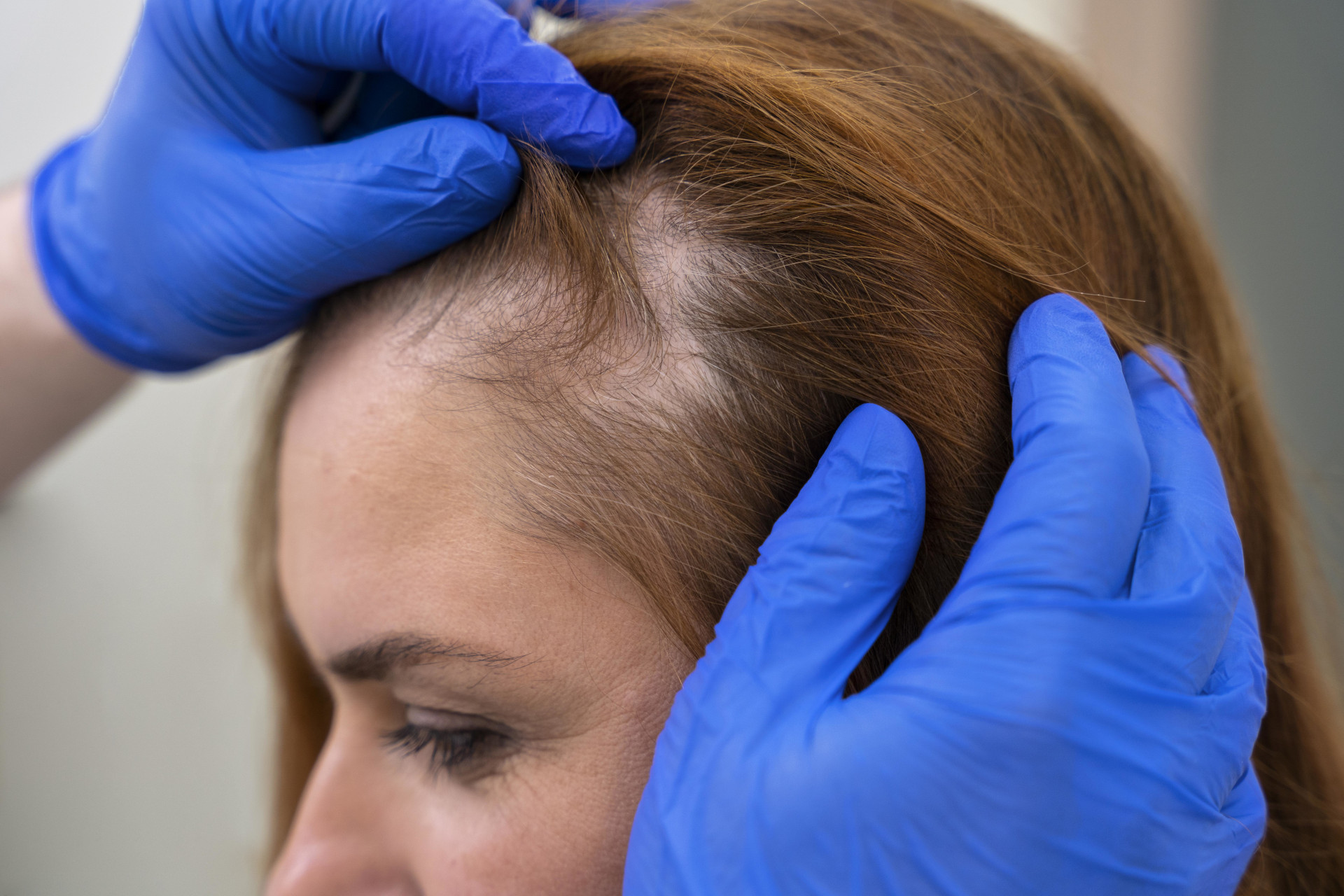
Regrow Your Crown: Top Tips for Restoring Hair Growth at the Crown Area
5 April 2023
Koral Reef – The Mediterranean Seaweed Cocktail for your Hair!
6 April 2023If you’ve ever experienced an itchy, tender, or painful scalp, you may have wondered why your scalp is so sensitive. It can be frustrating and uncomfortable, but there are several reasons why this may be happening. In this article, we will explore the possible causes of a sensitive scalp and what you can do to find relief.
- Scalp skin conditions: One of the main reasons for scalp sensitivity is the presence of skin conditions such as dermatitis, psoriasis, or eczema. These conditions can cause inflammation, redness, and itching on the scalp, making it sensitive to touch or even hair movements. If you notice any patches of flaky skin, dandruff, or a rash on your scalp, it’s important to see a dermatologist for proper diagnosis and treatment.
- Chemical irritants: Hair care products, such as shampoos, conditioners, hair sprays, and styling products, may contain harsh chemicals that can irritate the scalp. Ingredients like sulfates, parabens, and fragrances can cause allergic reactions or irritation, leading to scalp sensitivity. It’s essential to choose hair care products that are labeled as gentle or specifically formulated for sensitive scalps and avoid those with potential irritants.
- Overwashing or incorrect washing techniques: Washing your hair too frequently or using hot water can strip the scalp of its natural oils, leading to dryness and sensitivity. Additionally, using aggressive or harsh techniques while washing, such as vigorously rubbing the scalp or using a brush with stiff bristles, can also cause scalp irritation. It’s best to wash your hair no more than every other day or as needed, using lukewarm water and gentle massaging motions with your fingertips.
- Scalp sunburn: Just like your skin, your scalp can also get sunburned, especially if you have thinning hair or exposed areas of the scalp. Sunburn can cause redness, tenderness, and peeling on the scalp, leading to sensitivity. To protect your scalp from sunburn, wear a hat or use a sunscreen spray specifically designed for the scalp when spending time outdoors.
- Allergies or sensitivities: Some individuals may have allergies or sensitivities to certain foods, environmental factors, or materials that can trigger scalp sensitivity. Common allergens include pollen, pet dander, dust mites, and certain foods like dairy or gluten. Identifying and avoiding these triggers can help alleviate scalp sensitivity.
- Hormonal changes: Hormonal changes during pregnancy, menopause, or due to hormonal imbalances can also affect the health of your scalp. These changes can lead to dryness, inflammation, and increased sensitivity of the scalp. Consult with your healthcare provider if you suspect hormonal imbalances to address the underlying cause and find appropriate solutions.
- Stress and tension: Lastly, stress and tension can impact the health of your scalp. Increased stress levels can disrupt the balance of the scalp’s natural oils, leading to dryness, itchiness, and sensitivity. Practice stress management techniques such as meditation, exercise, and proper sleep to reduce scalp sensitivity caused by stress.
In conclusion, a sensitive scalp can be caused by various factors, including skin conditions, chemical irritants, incorrect washing techniques, sunburn, allergies, hormonal changes, and stress. Identifying and addressing the underlying cause is crucial in finding relief from scalp sensitivity. It’s recommended to consult with a dermatologist or healthcare provider for proper diagnosis and treatment options tailored to your specific condition. Using gentle hair care products, protecting your scalp from sun exposure, avoiding potential triggers, and managing stress can also help maintain a healthy and non-sensitive scalp. Remember to listen to your scalp and provide it with the care it needs to ensure its optimal health. So, take the necessary steps to keep your scalp happy


